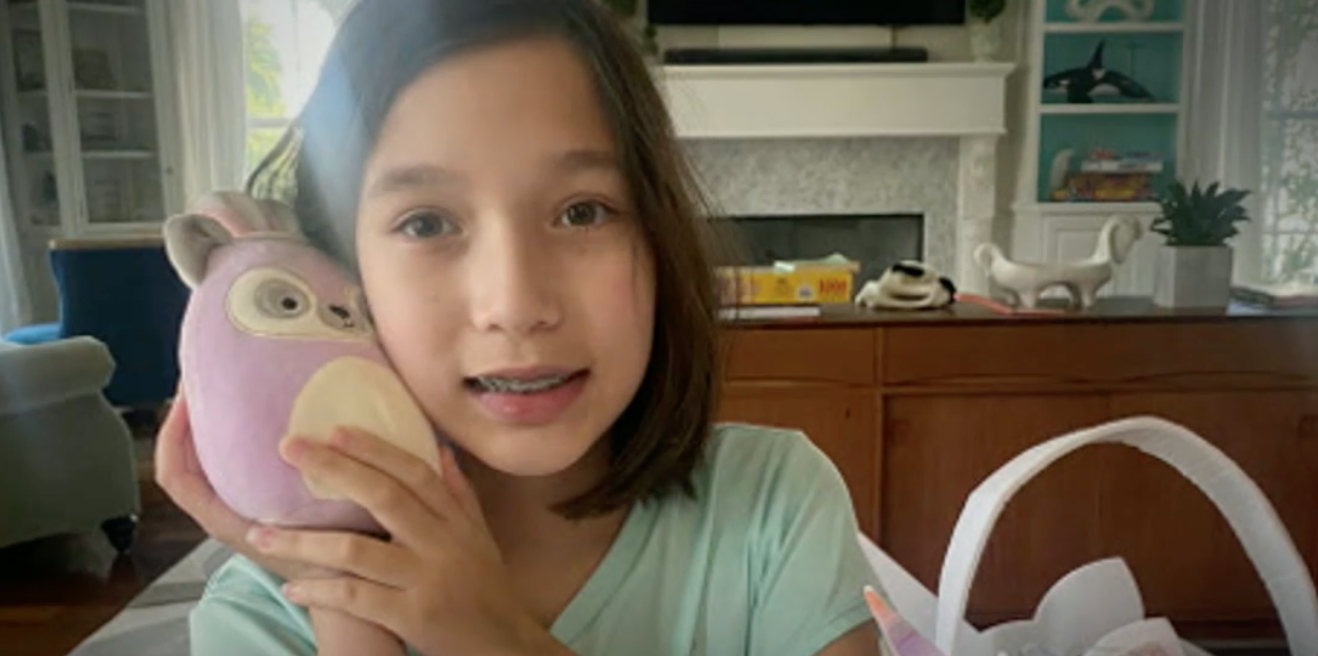
In the last few months, we've heard more heartbreaking stories than we can possibly even remember, now that the coronavirus pandemic has claimed more than 248,000 lives worldwide. But we've also heard incredible tales of triumph and even near-death experiences, as thousands of others continue to be saved by the amazing efforts of health care heroes. One such story belongs to 12-year-old Juliet Daly of Louisiana, who reportedly "died" for two minutes last week when her heart stopped. Though she was ultimately revived, doctors say Juliet developed a life-threatening inflammatory syndrome linked to the coronavirus, which seems to be a new and emerging illness affecting children.
The syndrome is something doctors across Europe have been struggling to learn more about for weeks.
It was first discovered by doctors in the UK and is drawing concern, according to a report recently published.
“[Over the] last three weeks, there has been an apparent rise in the number of children of all ages presenting with a multisystem inflammatory state requiring intensive care across London and also in other regions of the UK,” read the report, which was issued by the UK’s clinical commissioning group, according to the New York Post.
“There is a growing concern that a [COVID-19]- related inflammatory syndrome is emerging in children in the UK, or that there may be another, as yet unidentified, infectious pathogen associated with these cases,” it continued.
The main concern is that the syndrome, which is caused by the coronavirus, could lead to more pediatric deaths -- something we've not seen so far.
Experts say the inflammatory syndrome presents similarly to Kawasaki disease, a condition that causes inflammation in the walls of blood vessels. Typically, it affects children younger than 5, but in this case, older children with COVID-19, such as Daly, are seeing the symptoms.
Juliet is one of the first identified cases in the US of the inflammatory condition, according to the Daily Mail. Her mother, Jennifer Daly, has insisted that her daughter was otherwise a perfectly active and healthy 12-year-old before she fell ill. In just four days, Juliet deteriorated so fast she was hooked up to a ventilator in the intensive care unit.
Here's what's even more perplexing: Juliet's symptoms initially didn't mirror COVID-19 at all.
According to reports, she had severe abdominal pains but no fever, cough, or breathing troubles.
"My stomach would not stop hurting," Juliet told Good Morning America this week.
The pain became so unbearable, she even wished herself dead.
"I didn't want to move. I didn't want to live. I wanted for it all to stop," she admitted.
For two devastating minutes — it did.
Shortly after the 12-year-old was intubated, she went into cardiac arrest.
"I died for two minutes," Juliet told GMA.
As she lay there, her parents held their breath and stood stunned.
"They had to do two minutes of CPR on her," Jennifer recalled. "At that point, my whole world just crumbled."
Luckily, doctors were able to revive the girl. The family is speaking now to remind parents of how deadly the virus can be -- even for children.
"I think it's really important to get the message out. I mean we nearly missed it," Jennifer told GMA. "If we hadn't taken her to the hospital on time, I don't think things would've turned out okay."
The risk the virus poses to children is certainly something that's been lost in the messaging of the pandemic so far. Time and time again, we've heard that the virus affects the elderly and immunocompromised most. But as virus cases have continued to climb, doctors are starting to see that children are certainly not immune to it.
In late March, an infant in Chicago became the first US child to die from the virus. Just days later, a 7-month-old died in Connecticut. Shortly after that, a mother with COVID-19 was forced into early labor in Louisiana and lost her baby at 22 weeks.
As for Juliet, she is now home and is reportedly doing well.
Her parents continue to monitor her pulse and symptoms, but say they feel "grateful" their daughter didn't become yet another tragic statistic.
Meanwhile, doctors continue to remind parents that extreme cases like these remain more rare than they are the norm.
"Most children are going to have a very mild or asymptomatic case," American Academy of Pediatrics President Sally Goza, who is a practicing pediatrician in Fayetteville, Georgia, told GMA. "However, there are going to be children who get it and it's unknown how severe each case could be, so it’s still very important for children to do physical distancing."




